Search
Remove Ads
Advertisement
Summary 
Loading AI-generated summary based on World History Encyclopedia articles ...
Search Results
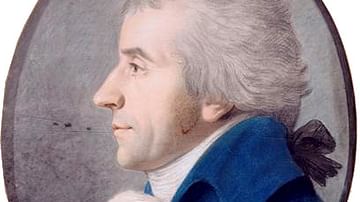
Definition
Jacques-Pierre Brissot
Jacques-Pierre Brissot de Warville (1754-1793) was a French journalist, abolitionist, and politician who played a prominent role in the French Revolution (1789-1799). A leader of the Girondins, a moderate political faction, Brissot was instrumental...

Definition
Antoine Barnave
Antoine Pierre Joseph Marie Barnave (1761-1793) was a French lawyer, politician, and one of the most influential orators of the early stage of the French Revolution (1789-1799). He is notable for being a champion of constitutional monarchy...
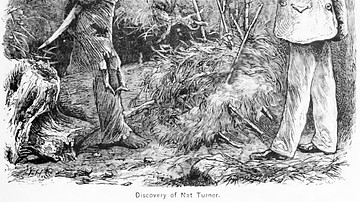
Definition
Nat Turner's Rebellion
Nat Turner's Rebellion (also known as the Southampton Insurrection) was a slave revolt in Southampton County, Virginia, between 21 and 23 August 1831. Led by Nat Turner (l. 1800-1831), an educated slave, the insurrectionists killed at least...
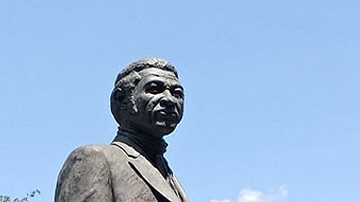
Definition
Denmark Vesey
Denmark Vesey (c. 1767-1822) was a free Black man living in Charleston, South Carolina, as a carpenter and community leader. A former slave himself, Vesey became involved in the antislavery movement and was accused of planning a large-scale...

Definition
Mary Prince
Mary Prince (l. c. 1788 to c. 1833) was the first enslaved Black woman to publish an autobiography/slave narrative. Prince was illiterate but dictated her life story to the writer Susanna Strickland (l. 1803-1885), published in 1831 as The...
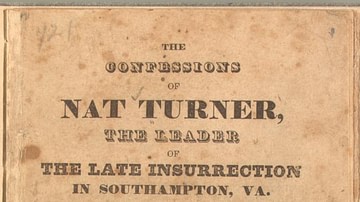
Article
The Confessions of Nat Turner
The Confessions of Nat Turner (1831) is the first-person account given by the rebel slave leader Nat Turner (l. 1800-1831) to the attorney T. R. Gray (l. c. 1800-1843) following Nat Turner's Rebellion in Virginia (also known as the Southampton...
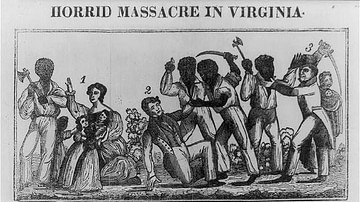
Article
The Aftermath of Nat Turner's Insurrection by John W. Cromwell
John Wesley Cromwell (l. 1846-1927) was an African American civil rights activist, educator, historian, journalist, and lawyer who wrote extensively on slave revolts, especially Nat Turner's Rebellion of 1831. Drawing on primary sources...
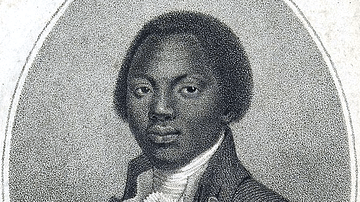
Article
Olaudah Equiano's Account of the Middle Passage
Olaudah Equiano (l. c. 1745-1797, also known as Gustavus Vassa) was an African of the Igbo village of Essaka, of the Kingdom of Benin (modern Nigeria), who was enslaved around the age of ten, bought his freedom around the age of 20, and became...
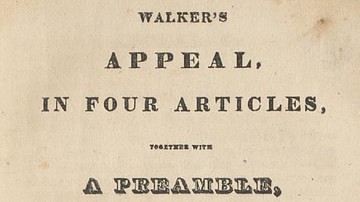
Article
David Walker's Appeal to the Coloured Citizens of the World
David Walker (l. c. 1796-1830) was an African American abolitionist writer best known for his 1829 work An Appeal to the Coloured Citizens of the World (also known The Appeal or Walker's Appeal) advocating for a united front in the abolition...
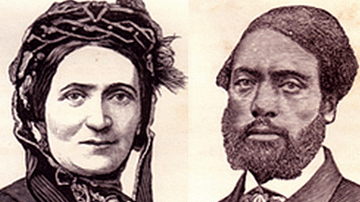
Article
Ellen and William Craft's Running a Thousand Miles for Freedom
Ellen and William Craft's Running a Thousand Miles for Freedom (1860) tells the story of the couple's escape from slavery, with Ellen disguised as a young, White gentleman of means and William as her slave. They successfully traveled to the...